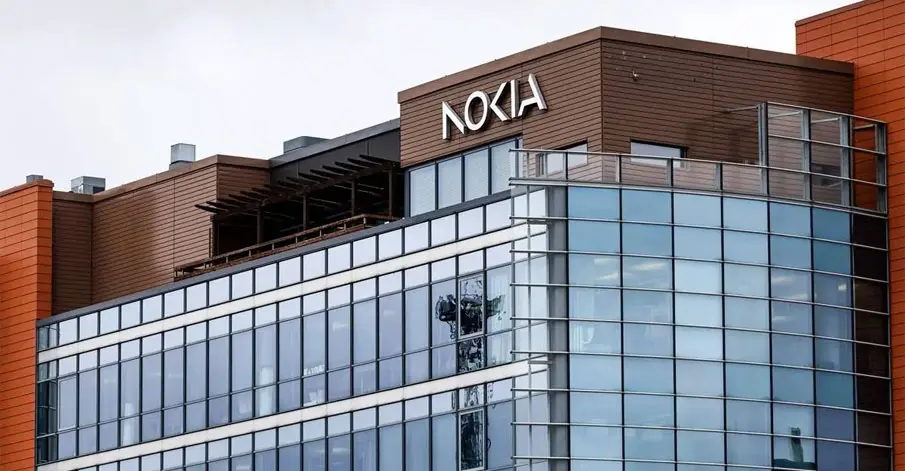Nokia has announced a significant investment strategy aimed at enhancing its presence in the United States and accelerating the development of next-generation network technologies powered by artificial intelligence (AI). The Finnish telecom infrastructure provider will deploy $4 billion across research, development, manufacturing, and key infrastructure initiatives.
Of this investment, $3.5 billion will specifically be allocated to research and development (R&D) programs designed to advance AI-enabled network connectivity. An additional $500 million will support the expansion of production capacity and capital expenditures across multiple U.S. states, including Texas, Pennsylvania, and New Jersey. Nokia already has a substantial footprint in North America, operating more than a dozen facilities, including its renowned Bell Labs research hub in New Jersey.
Industry Impact
This investment aligns with Nokia’s newly introduced corporate strategy, which emphasizes AI-driven innovation and operational efficiency as central to its business transformation efforts. This strategy aims to modernize products and enhance cost efficiency, responding to evolving market demands.
Nokia’s announcement comes at a time when the company is navigating economic challenges. In July, the firm issued a profit warning attributed to tariffs and foreign exchange fluctuations, prompting many international manufacturers to consider shifting production to the U.S. to mitigate risks associated with trade disruptions.
The significance of Nokia’s commitment was underscored by remarks from Finland’s President Alexander Stubb, who noted that discussions regarding Nokia’s strategic role in the U.S. took place during his October meeting with U.S. President Donald Trump. This highlights the political and economic relevance of establishing resilient telecommunications ecosystems within the Western landscape.
Currently, the U.S. lacks a large homegrown supplier of telecom network equipment, making companies like Nokia, Ericsson, and Samsung crucial partners for American carriers seeking secure and competitive technologies. This landscape underscores the importance of foreign investment in reinforcing domestic technological capacity.
Why It Matters
Nokia’s CEO Justin Hotard, who took the helm earlier this year after a leadership position at Intel, articulated the company’s market priorities by stating, “Nokia’s focus for networks is on countries that value Western technology.” By committing billions to U.S. innovation and production, Nokia is positioning itself as a key technology ally while supporting wider efforts to advance AI-centric industrial capabilities and network security in strategic global markets.
This investment not only strengthens Nokia’s foothold in the U.S. but also contributes to the broader AI landscape by enhancing the capabilities of network infrastructures. As AI continues to reshape industries, investments like these underscore the importance of integrating advanced technologies into telecommunications to meet future demands.
As Nokia progresses with this ambitious strategy, industry stakeholders will be closely watching its developments, particularly how this investment influences AI-driven connectivity solutions and the competitive landscape among telecommunications providers.
See also OpenAI Launches Nano Banana Pro with 2K and 4K Resolution for Enhanced Ad Creation
OpenAI Launches Nano Banana Pro with 2K and 4K Resolution for Enhanced Ad Creation Alphabet Stock Surges 2.1% to $290.25 on Major AI Advancements, Boosting Investor Confidence
Alphabet Stock Surges 2.1% to $290.25 on Major AI Advancements, Boosting Investor Confidence Perplexity Launches AI-Powered Comet Browser for Android with Voice Interaction and Summarization Features
Perplexity Launches AI-Powered Comet Browser for Android with Voice Interaction and Summarization Features Trump’s Push to Ban State AI Laws Sparks Outcry Over Child Safety Protections
Trump’s Push to Ban State AI Laws Sparks Outcry Over Child Safety Protections Yann LeCun’s Departure from Meta Signals Potential Shift in AI Strategy and Investments
Yann LeCun’s Departure from Meta Signals Potential Shift in AI Strategy and Investments

































































